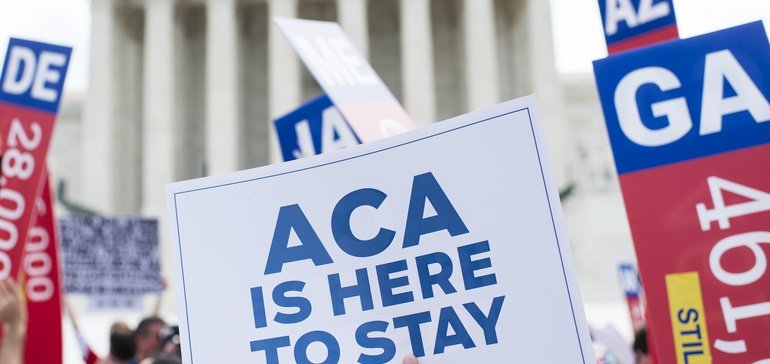
As the Affordable Care Act marks its 10th anniversary Monday, the law faces a unique and significant test as the economy seems likely to plunge into a recession amid the coronavirus pandemic, straining the country’s health system in an unprecedented way.
Most Americans still rely on health insurance coverage through their employers. However, the ACA opened up an entirely new market, compelling people to buy coverage on their own while mandating plans to provide basic protections such as guaranteeing coverage to those with pre-existing conditions.
In addition, states were given the option (after a Supreme Court ruling) to expand Medicaid to include more low-income people, allowing coverage for those who simply meet income requirements. Before, many had to meet those requirements and also fit into certain categories like having children or a disability status.
These changes, ushered in under President Barack Obama’s landmark health law, will all be important as the nation stares down the possibility of a recession and significant job losses.
“We are hurtling towards a recession, the first one since the ACA went into effect. There is a safety net in place for people who lose their jobs and health insurance that never existed before,” Larry Levitt, executive vice president for health policy at the Kaiser Family Foundation, tweeted recently.
However, Levitt warned there is a big hole in that safety net as states have opted out of expanding Medicaid. Though pressure is sure to mount if jobless claims rise, he said.
The ACA has certainly been embattled in other ways over its decade of being in place. The law that narrowly passed Congress has been attacked by the GOP since the early days, including efforts to overturn it via legislation and the courts. When Republicans gained control of the House and then the Senate, they pushed to repeal the law with various ideas for replacement. All of those efforts, however, failed
The act was dealt a major blow in December 2018 when a Texas judge ruled it was unconstitutional since Congress had zeroed out the individual mandate penalty. It’s that ruling that is still before the high court, which agreed to hear the case this fall.
But that schedule, too, is threatened by COVID-19. The Supreme Court has been doing its work remotely, but it’s unclear whether and how public hearings will go forward as large gatherings are banned in Washington, D.C.
Below is a sampling of our recent coverage.
